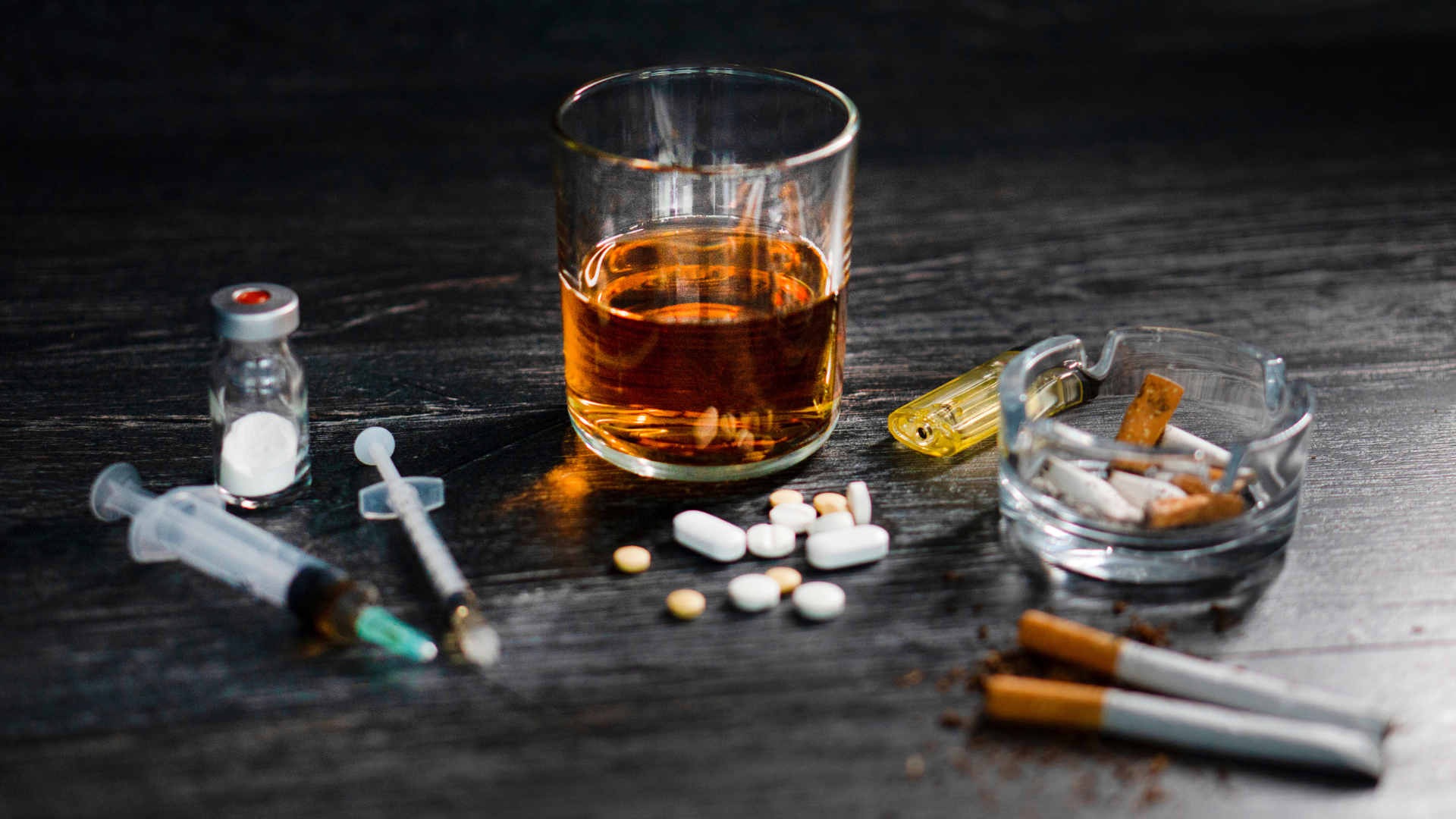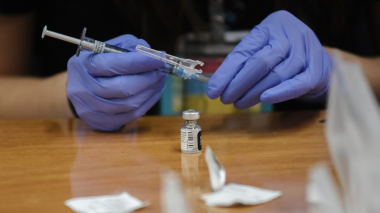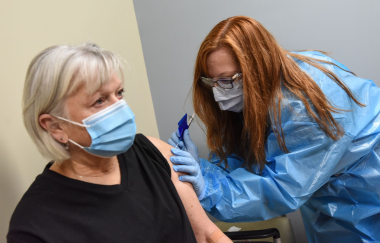It’s a very exciting time as the COVID-19 vaccine is rolling out at Atrium Health as well as at other healthcare systems, doctors’ offices, and facilities throughout the U.S. and around the world. However, some people may feel unsure about getting the vaccine.
For African-American communities, there are valid historic reasons to distrust the medical and scientific community. With more than 70,000 people, including African-American, Hispanic, Latinx, Asian and others, who volunteered in clinical trials, the COVID-19 vaccine has been proven to be safe and effective to prevent COVID-19 illness. Chris Branner, MD, specialty medical director of Urgent Care Services at Atrium Health, discusses why the vaccine will protect us and help get us all back to being together with peace of mind.
Question 1: First of all, have you already received the COVID-19 vaccine?
Answer 1 | Dr. Branner: Yes. I was eager to be one of the first to receive the vaccine, being an urgent care pediatrician. As a Black man and someone who works on the frontlines of healthcare, I understand both the science behind the vaccine and the hesitancies that I'm hearing about the vaccine within my own community. I want to be an ambassador within the healthcare community, the Black community, and the American community at large. I have seen a glimpse into what I see as the beginning of the end of this pandemic. I'm often asked how I felt when I received the vaccine, and I say that I have a sense of euphoria. I have an extra layer of protection now – in addition to the PPE (personal protective equipment) I wear and the COVID-Safe practices we maintain at Atrium Health.
Q2: What role do COVID-19 vaccines play in getting back to “normal”?
A2 | Dr. Branner: I want people to be able to go to places of worship again, to visit family and go to sporting events and school. The vaccine is a powerful tool that we have. That gets us one step closer as a society to being able to enjoy those things like we used to. I hope I can help lower fears and help more people get the vaccine so our society can get back to what we all used to enjoy.
Q3: How effective is the COVID-19 vaccine?
A3 | Dr. Branner: When we look at how effective the COVID vaccine is, it is 95% effective (works in 95 out of 100 people). That’s an astounding level of performance. If you compare that to the seasonal flu vaccine, it’s even better than the flu vaccine.
Q4: Did the studies include people from different races and ethnic backgrounds?
A4 | Dr. Branner: Both the Pfizer and Moderna vaccines were studied with diverse groups of people. This includes both men and women as well as people who were African-American, Asian, Hispanic/Latinx, and white.
Q5: What would you say to someone who doesn’t want to get the COVID-19 vaccine?
A5 | Dr. Branner: I won’t tell someone to do something they don’t feel comfortable doing. But, I will give them a way to ask questions and find out information. If someone is hesitant to get the vaccine, and they have questions and fears, they need to be able to talk with someone about the vaccine. That's the type of resource that I'm trying to be, and that primary care providers are trying to be. I understand the history, I understand where the hesitancy comes from. But I can give information to guide your journey forward.
Q6: Are there any side effects from the vaccine, like allergic reactions, pain, or other health problems?
A6 | Dr. Branner: I can say based on personal experience that getting the vaccine does not hurt. Like the flu vaccine, the most common side effects patients could get are pain where the shot was given, fever, tiredness, and headache. These are more likely to happen after the second dose of the vaccine is given.
There have been reports in the media about severe allergic reactions. But these reactions do not happen very often when you look at the millions of doses of vaccine that have already been given. The CDC (Centers for Disease Control and Prevention) is working to study and understand each of these unexpected medical problems. This will help to better predict who may be at risk for having allergic reactions. Immediate safety is a big concern that people have. The good thing is that the side effects have been minimal to none for most people who get this vaccine.
Q7: How can people be reassured that the COVID-19 vaccine is truly safe?
A7 | Dr. Branner: Understanding how a vaccine is developed was not a topic of dinner table conversation at most American households before 2020! But now everyone is becoming aware that scientists around the country and many pharmaceutical companies have been working very quickly to develop this vaccine.
So, the main safety question many people have is, “Have shortcuts been taken?” And the answer is no. There is a big difference between rapidly moving a process through versus taking shortcuts. Operation Warp Speed helped shorten the length of waiting time for these approvals to take place. So, things that used to take weeks of scheduling were instead happening in days. We all saw that with how the Pfizer and the Moderna vaccines were approved. They were being approved over a weekend. Each stage took place very quickly. It was not being rushed. People were being called in to work on weekends, after hours, at any time of day, to be able to get this vaccine safely to the community as fast as possible. So that's why it was created so quickly. They did not cut corners. The science behind vaccine is reliable and it is outstanding how effective it is.
Q8: What would you say to the African American community, and other communities of color, about hesitancy to receive the COVID-19 vaccine
A8 | Dr. Branner: Many folks in the African American community are aware of the Tuskegee Study. It unethically studied syphilis in Black men in America without their knowledge or consent. In this study, Black men were enrolled in a study believing they were getting treated for this disease. However, they were not getting treated. Then, afterwards they were continued to be denied treatment for decades. But out of that atrocity, human rights changes and conditions were set up in this country so that will never ever, ever happen again. Of course, some people don’t trust the messenger. I hope as a Black man trying to speak to the Black community, that my message resonates more powerfully.
Q9: What are some other reasons people may have vaccine hesitancy and how would you address those concerns?
A9 | Dr. Branner: One misconception folks have is that the vaccine can give you the disease. Many vaccines put a weakened or inactivated germ into our bodies, but not mRNA vaccines. The mRNA vaccines that have been developed for COVID are a next level in the evolution of vaccine development. mRNA vaccines teach the cells in our bodies how to make a protein that makes our immune system respond and fight it. That immune response, which makes antibodies, is what protects us from getting infected if the real virus enters our bodies. mRNA vaccines do not change your DNA. The idea that a vaccine can give you a disease is simply false. Also, none of the tests of the vaccine showed any connections to autism. In fact, no vaccine in the past has been shown to be linked to autism.
Q10: What does getting the COVID-19 vaccine mean to you personally, and for your patients, loved ones, and community?
A10 | Dr. Branner: Human beings need to come together. That's what we do, we gather – and that togetherness gives us our humanity. Personally, getting the vaccine as a scientist, as a Black man, as a father, as a husband, and knowing that this new weapon in this fight against COVID was now available to us was just a blessing. I'm thankful to be able to see this day and to have been able to get the vaccine. I'm happy to be able to talk to others, to encourage them that when their time comes, when they're ready on the priority list, that they step up and take advantage of this wonderful gift.
More on why Dr. Branner trusts the COVID-19 vaccine.
For more information on the COVID-19 vaccine, including how to register to schedule an appointment when it’s your turn, visit AtriumHealth.org/COVID19Vaccine.



